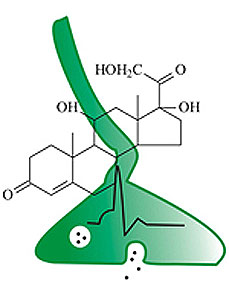 Origin
OriginSchool of Clinical Sciences, Faculty of Health Sciences, University of Bristol
See also: Online tests
Dr Astrid Linthorst, Astrid.Linthorst@bristol.ac.uk
The MSc in Molecular Neuroscience takes 22-25 students each year. They study 6 taught units before completing an independent research project. The course attracts a diverse group of students with a high proportion of international students.
The taught units used to be assessed solely by way of traditional closed-book exam. Tutors felt that this did not allow all students to show what they were capable of. In particular it could be unfair to international students who were accustomed to very different assessment methods.
The course was altered so that the mark for each taught unit was made up of two different pieces of assessment. The methods used include literature reviews, mock grant proposals and oral presentations, as well as traditional exams. With every assessment double-marked, there was an increasing burden on academic staff.
Tutors decided to introduce e-assessment as one of the assessment methods. The format chosen was multi-choice questions (MCQs) with negative marking. The MCQs test knowledge and understanding. A different assessment method was used for the second piece of assessment. This would be something designed to test higher level skills, such as applying and manipulating knowledge.
MCQ e-assessments are now part of the assessment on three out of the six taught units.
Before every exam the students are given a mock exam. This ensures they are familiar with the software and the style of questions. Negative marking is explained carefully as this can cause some anxiety amongst students.
E-assessment has helped to significantly reduce the amount of time spent marking assessments. It has generally been well-received by students.
The process of introducing e-assessment has been very smooth. Tutors made good use of the high level of support available from theTEL team, and said this helped them feel very confident about using the system and running online exams.
Whilst introducing e-assessment has been very successful, it is unlikely to be extended beyond three to four units, and it will never form the sole assessment on any individual unit. It is important that it forms part of a wider range of assessment methods - it would be inappropriate to rely on MCQs alone. However, they are a useful option for assessing particular skills and knowledge, saving a lot of time in routine marking.